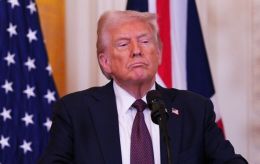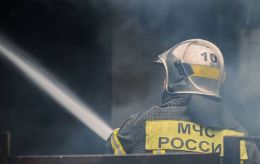Who's responsible for corruption in Ukraine, or why Zelenskyy's office didn't take anti-corruption bureau's side
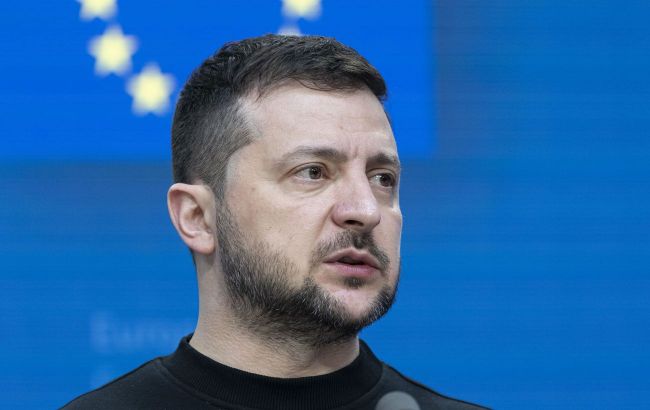 Photo: Volodymyr Zelenskyy (Getty Images)
Photo: Volodymyr Zelenskyy (Getty Images)
Ukrainians and Western partners expect the government to actively combat corruption during the war. The Office of the President, wishing to have more control, proposed equating corruption to state treason and thereby transferring the cases of top bribe-takers from the National Anti-Corruption Bureau (NABU) to the Security Service of Ukraine (SSU). After receiving signals from Western donors with this idea, it was decided not to rush. For more details read below in the material by RBC-Ukraine.
The war has changed Ukrainians' attitude toward corruption. Previously, news of another official caught in a large bribe would irritate but rarely surprise. However, now, as the country fights for survival with the military holding off Russians on the front lines, a corrupt official is seen as an enemy deserving the harshest punishment.
The Office of the President on Bankova Street, understanding the demand for justice, decided they needed to show success in the fight against corruption and ideally punish the guilty. In the midst of a complex counteroffensive, this is one of the few areas where the government has a chance to demonstrate quick results to society. Ukrainians place the full responsibility for this issue on President Zelenskyy, as indicated by recent opinion polls.
"When the President proposed equating corruption during wartime to state treason, cries of 'tightening screws' began in the political sphere. So, why should the President be responsible for paving streets, stadiums, tennis courts, and other trivial matters during wartime?" reacted Davyd Arakhamia, the head of the "Servant of the People" faction in the Verkhovna Rada (Parliament).
The idea voiced by Zelenskyy at the end of August was not well-received, not only by the political establishment but also by the presidential team itself. Because, at first glance, this simple idea could add confusion and unnecessary complexity to the work of law enforcement agencies, as well as create tension with Western partners. All due to the overlapping jurisdiction between the NABU, responsible for investigating top-level corruption, and the Security Service of Ukraine SBU, responsible for state security.
On the contrary, the United States and the European Union are sending signals to the government to strengthen the existing anti-corruption infrastructure, led by NABU and the Specialized Anti-Corruption Prosecutor's Office (SAP). Partners directly link further funding for Ukraine to expanding the powers of the head of the SAP, as well as the reintroduction of electronic asset declarations and the implementation of lifelong declarations for top public servants and deputies.
"Déjà vu"
On September 5th, a conference "4 Years of High Anti-Corruption Court (HACC): Achievements and Challenges" took place in Kyiv, gathering representatives from various anti-corruption bodies in Ukraine. While discussing the initiative of the National Bank regarding the strengthening of corruption-related crimes, the former head of NABU and current deputy head of the National Agency for Corruption Prevention (NACP), Artem Sytnyk, began his response with a well-known phrase from former President Leonid Kuchma.
"It's déjà vu! Many times and long ago. In 2015, when I was just elected as the head of NABU, I heard about it. The fight for alternative jurisdiction has always been one of NABU's objectives. Every new prosecutor general dreamed of it," stated Sytnyk.
The idea of introducing the so-called "alternative jurisdiction" in the fight against corruption is not new. NABU was created at the suggestion of Western partners as a monopoly and independent agency, which initially did not sit well with many politicians in Ukraine.
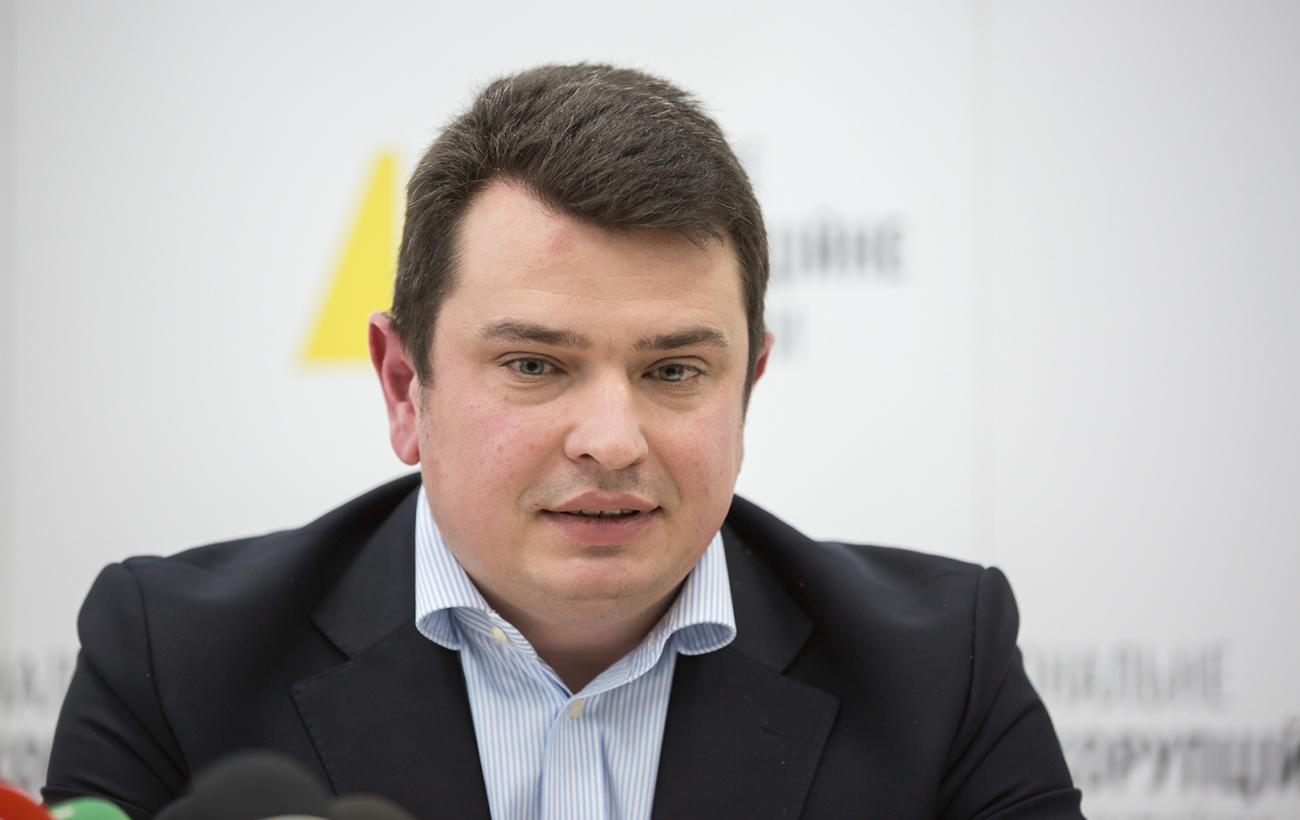
Artem Sytnyk (Photo: NABU)
In the law, it is specified that only NABU investigators can investigate top-level corruption crimes. This move was made for several reasons, with the main one being the corrupt individuals who formed a "caste of untouchables." The idea was to create something independent of the vertical of power that could work without interference.
Throughout the years of NABU's existence, followed by SAP and HACC, officials and politicians at various levels have tried to gain control over the fight against corruption in one way or another. One of the first to propose alternative jurisdiction in 2016 was Prosecutor General Yurii Lutsenko. The initiative was that the investigation would be conducted by the agency that first registered the case.
Alternative jurisdiction opened up a vast field of action for investigators from various agencies. Clone cases began to appear, and there were frequent attempts to take over investigations from NABU. Then, as now, there were complaints about the small staff of the Bureau and criticism of its inefficiency, said Sytnyk in a comment to RBC-Ukraine.
Although the law on alternative jurisdiction was never passed, clone cases continued to be created. When they reached the courtroom, judges would often close the investigation because the evidence was collected by an unauthorized investigative body. According to Sytnyk, there were quite a few such cases where potentially corrupt individuals were acquitted in court not based on the substance of the case but due to the inadmissibility of evidence.
Another example of an attempt to control a corruption scandal occurred with the current government. In 2020, the case of the Deputy Head of the Office of the President, Oleh Tatarov, which was being investigated by NABU, was unexpectedly transferred to the Prosecutor General's Office. The decision was signed by the Deputy Prosecutor General and ordered by a judge from the Pecherskyi Court.
At the same time, the "Servant of the People" party introduced a bill to parliament that would grant the Prosecutor General the authority to change jurisdiction and transfer any case from NABU, State Burea of Investigation (SBI), or the National Police to the Security Service of Ukraine. The project sparked public outrage and was never passed, but attempts to take control of corruption investigations did not cease.
"Now, this situation feels like déjà vu to me because the motivation behind these decisions is the same – the ability to control investigations into cases involving officials, where there are significant losses. And where there are such losses, there is always a high-ranking official involved," Sytnyk emphasized.
Substitution of concepts
The president's initiative to transfer corruption cases to the hands of the Security Service of Ukraine is no different from previous ones. Except for the fact that corruption during wartime is proposed to be considered state treason. In the draft law that was being worked on in the Verkhovna Rada, according to RBC-Ukraine sources, they wanted to duplicate articles from the law on the NABU and introduce provisions similar to the law on the SSU.
The public motivation of the initiators is simple – in wartime, some particularly serious corruption cases should be treated as crimes against national security, which is precisely what the SSU deals with.
What does the wording of the law proposed by the Office of the President change for corrupt officials? For the most serious corruption crime in our country, they are given 12 years of imprisonment, while for state treason, it's 15 years. Considering that no bribe-taker in Ukraine has been sentenced to the maximum term, it will be difficult to prove the need for 15 years of imprisonment in court. Moreover, criminal law was not created to punish but to prevent potential crimes, according to Yaroslav Yurchyshyn, the deputy head of the anti-corruption committee of the Verkhovna Rada.
"When Italy was actively fighting the mafia, they had a practice that it's better for poor mafiosi to be free than rich ones in prison. This is quite logical. What does 15 years for state treason and no bail mean? It's necessary to prove intent, actions in the interests of a third party, and such sentences have been very rare throughout the country's history," Yurchyshyn noted in a comment to RBC-Ukraine.
The author of the not-so-new idea of transferring part of corruption cases under the jurisdiction of the SSU, according to several RBC-Ukraine sources, is Oleh Tatarov, the deputy head of the Office of the President. However, as sources claim, this does not mean that Zelenskyy himself fully understands what this initiative might lead to.
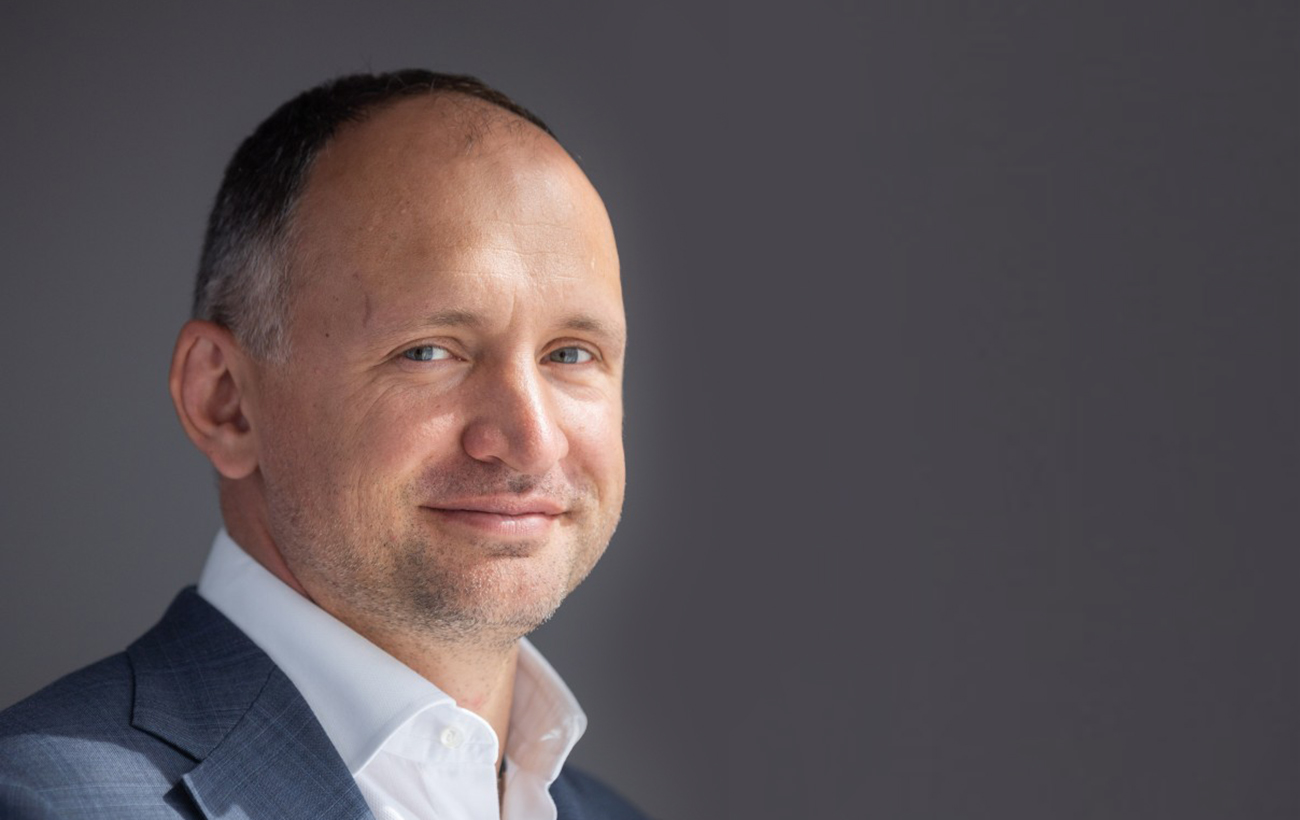
Oleh Tatarov (Photo: President's website)
"In the Office, there are different groups pursuing their own goals. Tatarov clearly understands how he can influence the course of various cases, but he cannot do this with NABU and SAP. The president has a societal demand to increase accountability for corruption. Here, we recall 2019 when Zelenskyy promised that we would start imprisoning them in the spring, then the question of whether we support life sentences for corrupt officials, and now we see that we are equating this to state treason. So, in the president's picture, we just need to punish corrupt officials more severely," says Yurchyshyn.
A week after Zelenskyy's statement, NABU responded unequivocally. Speaking at the same conference summarizing the work of the HACC, Semen Kryvonis, the head of the Bureau, stated that corruption cases cannot be handed over to other agencies.
"The exclusive jurisdiction of NABU over top-level corruption is one of the foundations of the independence of anti-corruption agencies. The foundation and basis on which the anti-corruption structure was created. I think this is simply not subject to any discussion; NABU's exclusive jurisdiction should remain in the form it is," said the head of the Bureau.
He was supported by Oleksandr Klymenko, the head of SAP, who noted that "any interference in our jurisdiction and any attempt to influence it in any way is primarily a threat to our independence." Even Prosecutor General Andrii Kostin stated that NABU and SAP should not be taken away part of what they have today, implying that the Prosecutor General's Office would not seek to take over the anti-corruption activities of the Bureau.
Western partners have never hidden their attitude toward periodic initiatives of the Ukrainian government to create a controlled fight against corruption. Often, Ukrainian anti-corruption activists and their supporters sought protection from governmental initiatives in the embassies of G-7 countries.
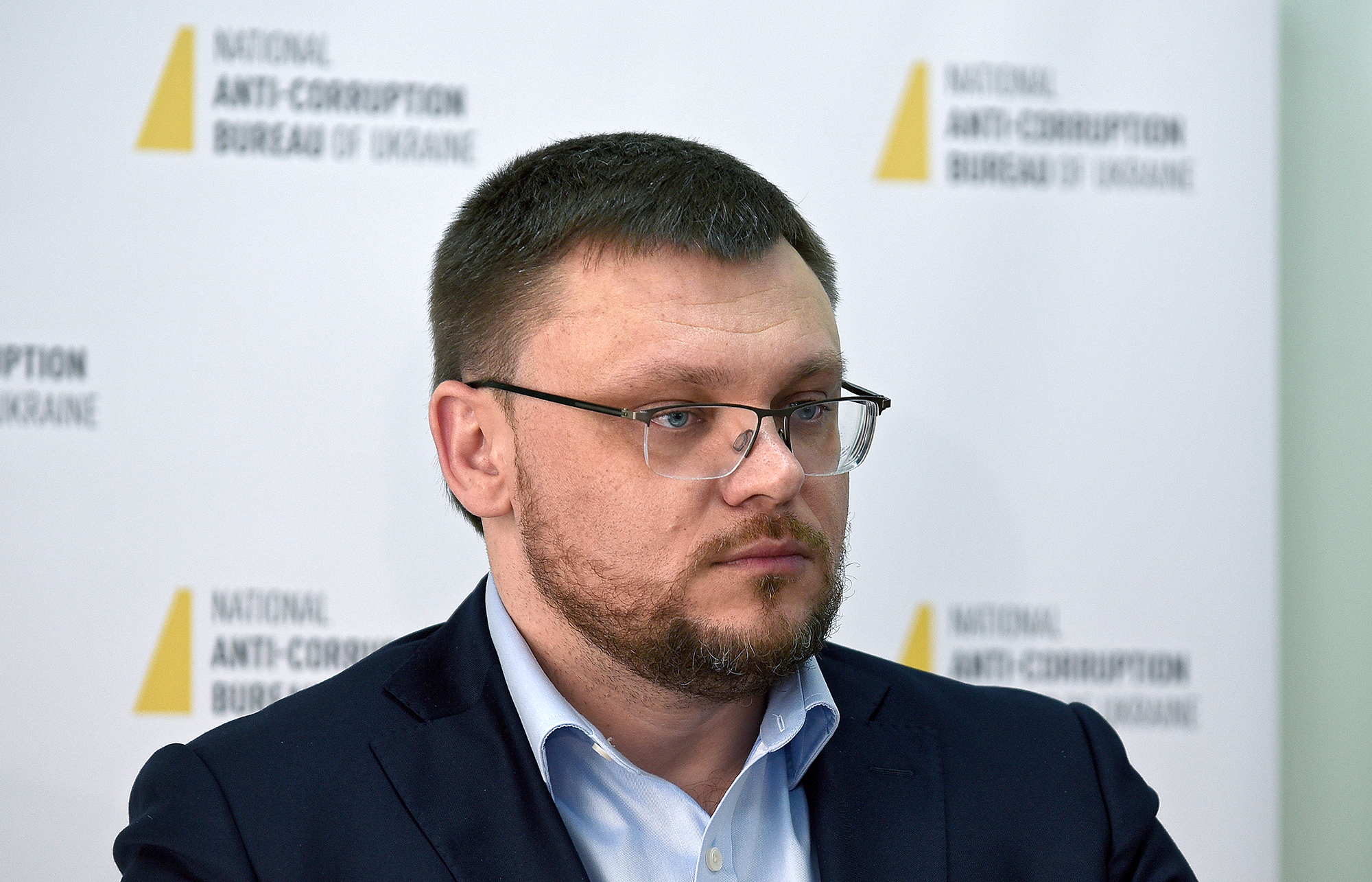
Semen Kryvonis (Photo: Getty Images)
Currently, the Western response is no different from the previous one. According to RBC-Ukraine information, international partners of Ukraine have already signaled to government representatives that they do not support this initiative and will publicly oppose it.
"There were calls from embassies and partners across the ocean to Bankova (Office of the President - Ed.). It was made clear that they would not understand the adoption of such a law, and it would not go without a reaction," said an informed source, without going into the details of the calls.
Last week, the idea of corruption and state treason was not widely broadcast. After calls from partners to the Verkhovna Rada, perhaps they decided to wait on it. Undoubtedly, it's possible that a similar initiative will be proposed again and thrown to a parliamentary vote. However, if the Office of the President goes against the opinion of Western allies, it is unlikely to have an immediate impact on Ukraine's assistance, but waiting for partners' loyalty on many issues also makes little sense.
Work plan
The Security Service of Ukraine, which the Office of the President wants to load with additional work, did not give a direct answer to questions about their thoughts on this. "As for changes to the legislation, this issue falls within the authority of the Verkhovna Rada of Ukraine. The right to legislative initiative in parliament belongs to the President of Ukraine, Members of Parliament, and the Cabinet of Ministers," states the response to RBC-Ukraine's inquiry.
Critics of the Office's idea emphasize that it's not about whether the SSU can handle corruption crimes. But the essence of fighting corruption is that it should be handled by a fully independent agency.
"The head of the Security Service is appointed not based on competition results, but purely in the political process – the President proposes, and the Parliament confirms. In this case, it's impossible to talk about political impartiality; this person will be the President's choice. Consequently, all cases investigated by the SSU are not represented by the Specialized Anti-Corruption Prosecutor's Office in court, where, again, there is competition, but by the Office of the Prosecutor General," says Yaroslav Yurchyshyn.
Moreover, the question of the inefficiency of the National Anti-Corruption Bureau in the fight against corruption is quite contentious. In just 2023, the Bureau initiated around 300 cases and sent 58 indictments to court. Of course, the focus should be on results rather than the process, but the work is evident. However, NABU itself states that to achieve more significant results, they need two things: more staff and the establishment of an independent center for forensic examination.
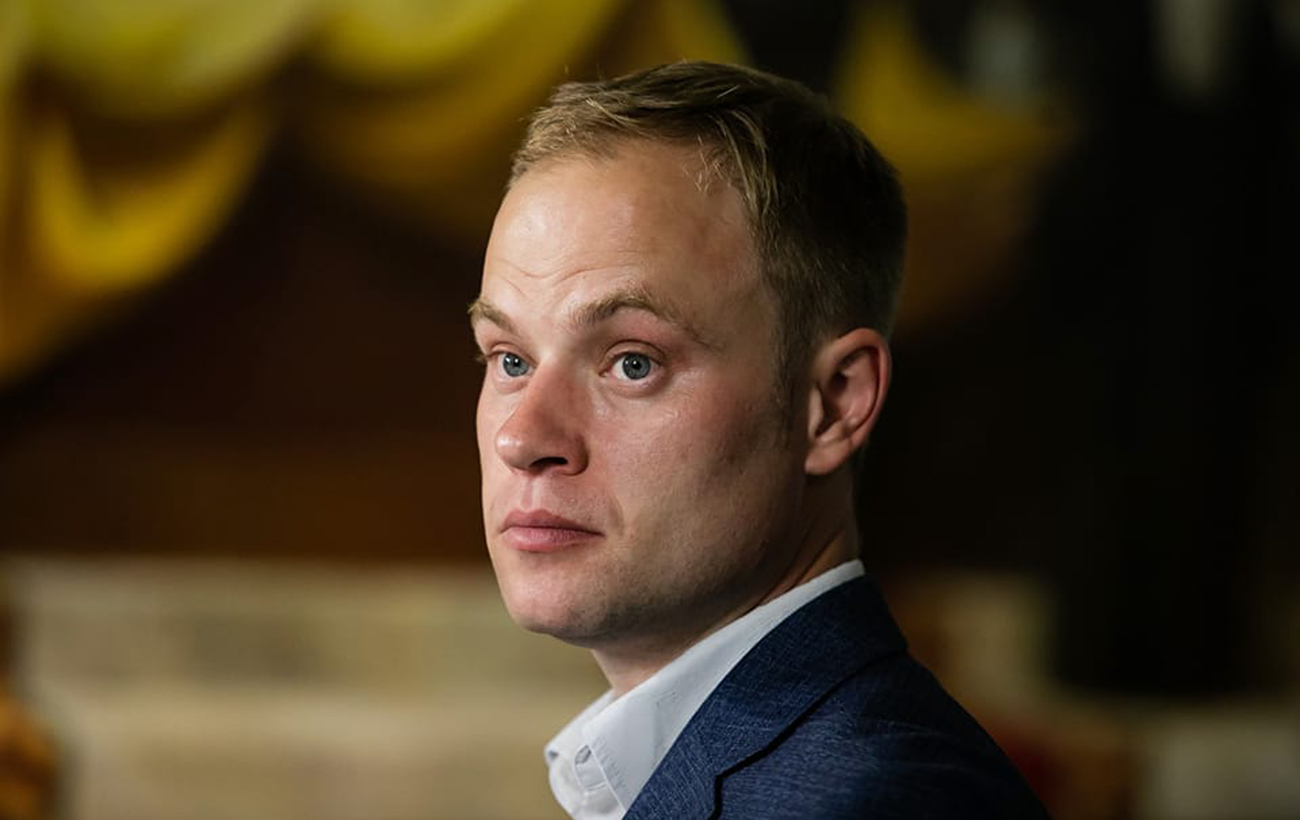
Yaroslav Yurchyshyn (Photo: Facebook)
The question of increasing the number of Bureau employees has been raised for quite some time. They estimate that they need about 300 people. This means that more employees need to be assigned to the Specialized Anti-Corruption Prosecutor's Office and the High Anti-Corruption Court as well. As for the center for forensic examination, it is necessary for the Bureau when detectives investigate financial cases related to the economic sphere. When it comes to hundreds of transactions from different banks, and various operations with accounts, detectives turn to an expert who provides an assessment. Since the Bureau does not have its own agency, employees send documents for examination to other law enforcement agencies, which carries its own risks. In the best case, the examination may be delayed, and in the worst case, information may leak.
According to RBC-Ukraine's sources, the Office of the President is not against helping with the recruitment of detectives, but they refuse to create a center for forensic examination. When discussing this issue, politicians promise to carry out a comprehensive reform and consolidate all institutes of expertise into one. It is not entirely clear how this will help accelerate the course of investigations, but the Bureau emphasizes that the institute is needed for their work to be more effective right here and now.
As for increasing the severity of penalties just for the sake of tougher penalties, a simpler way can be taken by increasing sanctions for the most severe corruption offenses. What sense is there, during a state of war, to transfer some cases to another agency, thereby provoking a massive spam of proceedings and a lot of clerical work – a question for which there is currently no answer.
"At the moment, this initiative does not take into account the consequences for cases that are already being investigated. In fact, the entire system of law enforcement agencies will have to be rebuilt. This is a devastating blow to the reform that, in the opinion of our partners, has been successful," Artem Sytnyk noted.
***
In different periods of its history, the government in Ukraine has tried to take control of the fight against corruption. The reason is simple – electoral justice helps resolve numerous uncomfortable issues for both oneself and political allies. Today's political landscape is no exception. Perhaps, for the President, such an initiative is a way to take responsibility for an issue that he believes he is accountable for. However, the whole point of creating anti-corruption institutions was that government representatives could not be the final link in their activities.
